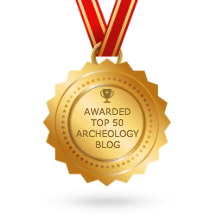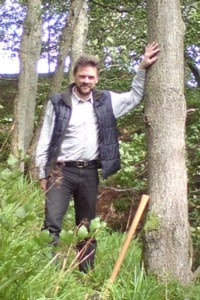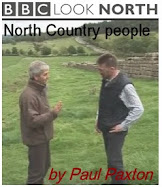 Theoretical structural archaeology is about understanding the
evidence of ancient built environments, and previously I have written about the
importance of those sites ‘frozen in time’ by some disaster preserving
buildings and content in situ.
Theoretical structural archaeology is about understanding the
evidence of ancient built environments, and previously I have written about the
importance of those sites ‘frozen in time’ by some disaster preserving
buildings and content in situ.
For the Roman world, Herculaneum and Pompeii give us that unique
insight, a level of detail, unimaginable in conventional archaeology, which has
become central to our understanding of the period. While we are familiar with plaster body
castes, dramatic reconstructions, and looming clouds of volcanic death, quite
what this really means to archaeology, archaeologists and everybody else is a
lot more complex, nuanced, and interesting.
A Serous insight into the archaeology of the built environment
[and why it’s important].
In the latest edition of Ideas Roadshow, Howard
Burton gives us an extraordinarily insightful interview with Professor Andrew Wallace-Hadrill about the world of Herculaneum present and past. This is a subscription service, so they want
your money, but in return they offer an opportunity to spend quality time with
interesting people talking about what they know best. Professor Wallace-Hadrill effortlessly blends
the latest insights into the archaeology, with its long and complex relationship
with local society, down to the present day issues of conservation,
presentation, and exploration. [This is a Preview - but at the moment you can watch it for Free!].
 While the individual problems of the site are those familiar to
most archaeologists in some form, the scale and range of issues at sites like Herculaneum
make it something of a macrocosm
for archaeology as a whole; it is the subject at its most potent, complex, and deeply
entangled in the wider issues of society.
If archaeology is to endure in these difficult times, it is important
that what archaeologists do in the widest sense, as well as how they think, is readily
available to be understood at a level beyond that of the average the television
documentary.
While the individual problems of the site are those familiar to
most archaeologists in some form, the scale and range of issues at sites like Herculaneum
make it something of a macrocosm
for archaeology as a whole; it is the subject at its most potent, complex, and deeply
entangled in the wider issues of society.
If archaeology is to endure in these difficult times, it is important
that what archaeologists do in the widest sense, as well as how they think, is readily
available to be understood at a level beyond that of the average the television
documentary.
The Ideas Roadshow is presented in an interview format, so you
are obliged to listen and think about what is being said without the distraction
of images or the need of a visual narrative. I
enjoyed it for free, it presented a rare opportunity to get an insight into not
just Herculaneum, but also archaeology on an executive level, where it is very “real”,
and concerned with contemporary issues. The
Professor is an archaeologist with passion, and he is intelligently and unobtrusively
interviewed about things that I found interesting,
but this is not a review, just a recommendation.
Picture credit;

















0 comments:
Post a Comment